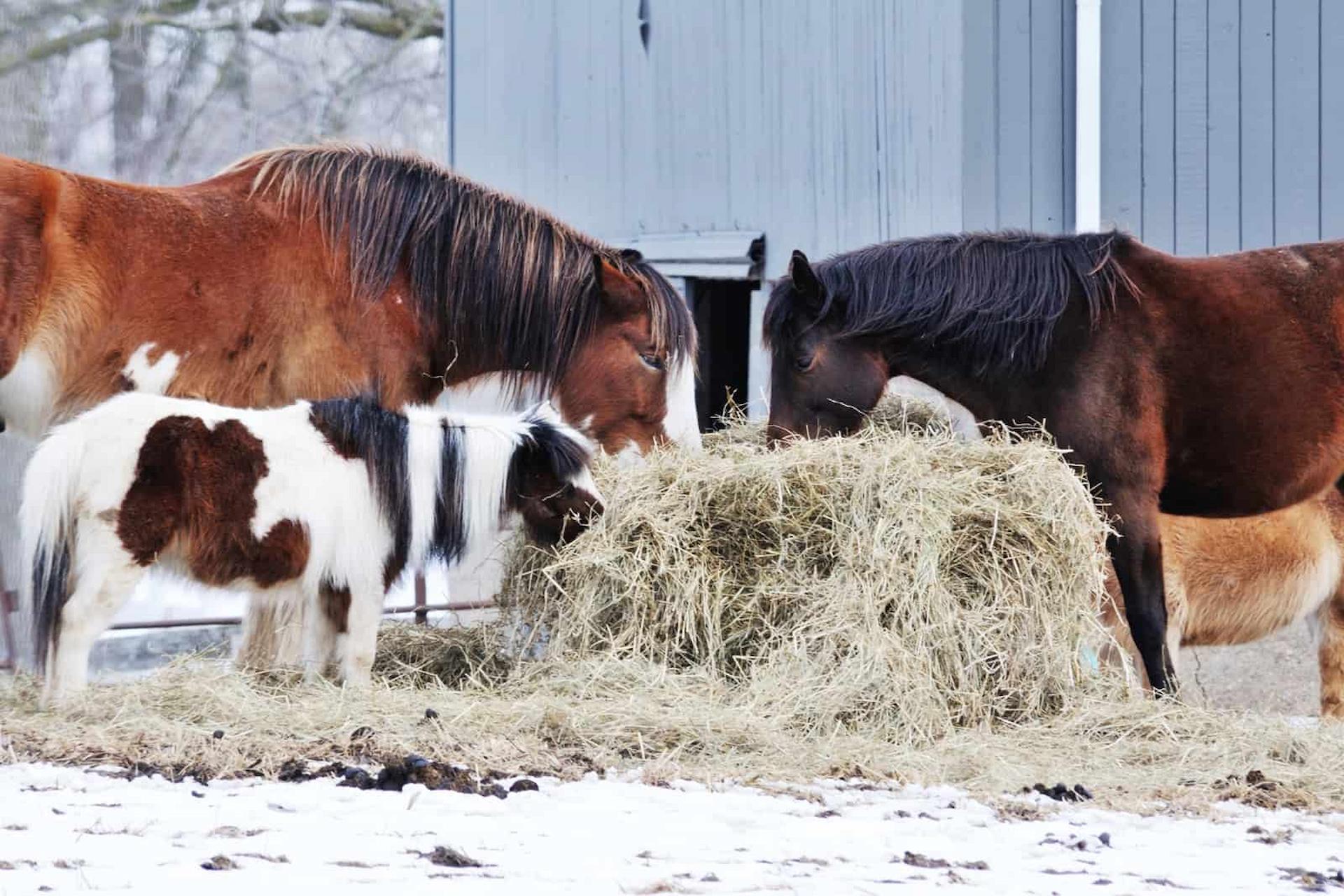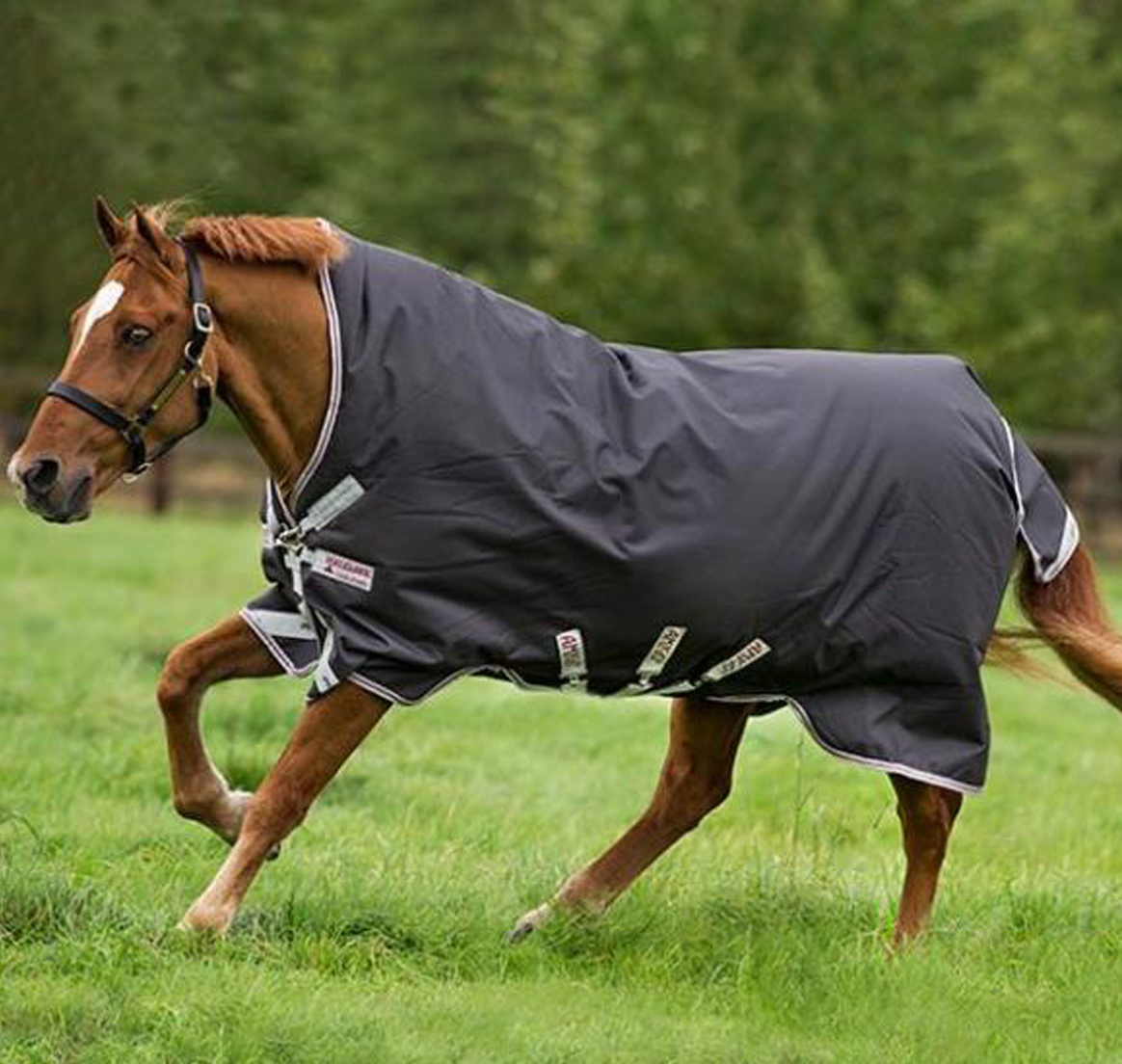As we approach winter, you may be thinking about how to best care for your horse as the days get shorter and the weather colder. One of the most important elements to consider is how your horse’s nutritional needs might change as the year draws closer. Below, we’ll look at how feeding alfalfa can benefit your horse and prepare them for winter.
Understanding Winter Nutrition
As winter approaches, your horse may have additional dietary requirements to stay healthy and happy in the colder weather. When the nights draw in and the temperature drops, your horse naturally burns more calories to keep warm. For this reason, if they are prone to losing weight, you may need to provide them with a diet that meets their increased energy demands. Regular body condition scoring will help you to identify if your horse is starting to lose weight and whether any adjustments to the ratio are required.
Quality Forage
Forage should make up the majority of your horse’s diet, and in winter, when fresh pasture may be less available, choosing the right type of fibre to support your horse’s nutritional needs is crucial. Alfalfa is a legume commonly fed as hay in the United States and parts of Europe. However, in the UK, alfalfa is more commonly provided in smaller amounts as a short chopped fibre. It can be a good option to boost your horse’s fibre and nutrient intake alongside their grass hay or haylage during the winter months.
Nutritional Benefits of Alfalfa
We’ll take a closer look below at the benefits that come with feeding alfalfa:
High Protein
Alfalfa is high in protein, which is beneficial for muscle maintenance and tissue repair, as well as aiding immune function and overall health. It’s crucial to ensure your horse has enough protein in their diet, as the winter weather can increase stress on the body.
Rich in Fibre
As a horse owner, you’ll know how essential it is to feed your horse good quality fibre. It’s a key component of your horse’s diet, which promotes healthy digestion and can reduce the risk of issues like colic and gastric ulcers. Feeding alfalfa in the winter to top up your hay ration provides a highly digestible source of fibre to support your horse’s overall gastrointestinal health.
Plenty of fibre can also help keep your horse warm in winter. Fibre is fermented within the hindgut, and heat is produced as a by-product of this process – so feeding sufficient fibre can help to keep your horse warm from the inside out!
Vitamins and Minerals
Vitamins and minerals are essential in the horse’s diet all year round, but even more so in winter when they may not have access to fresh forage. Alfalfa provides a good source of calcium for bone health, as well as beta carotene, which is converted to vitamin A in the body and is important for vision and immune function. Feeding alfalfa alongside a suitable vitamin and mineral supplement or balancer can give you peace of mind that your horse is getting the essential nutrients they needs within their diet to help support their health throughout the winter.
Weight Management
For horses that tend to drop off over the winter months, adding alfalfa chaff is a useful way of increasing their energy intake to help maintain weight and condition. Alfalfa chaffs are typically higher in calories than straw or grass-based chaffs and can be fed at levels of up to 500g per 100kg of body weight per day (i.e., 2.5kg per day for a 500kg horse). Some types of alfalfa chaff may also have added oils to boost calorie intake even further.
Introducing Alfalfa into Your Horse’s Diet
Of course, implementing changes to your horse’s diet at any point during the year should be done with care to avoid digestive issues. When introducing alfalfa to your horse, start with a small amount and increase the quantity gradually over several days. When you’ve made the change, monitor your horse’s body condition regularly and adjust the quantities as needed, depending on their weight and condition.




